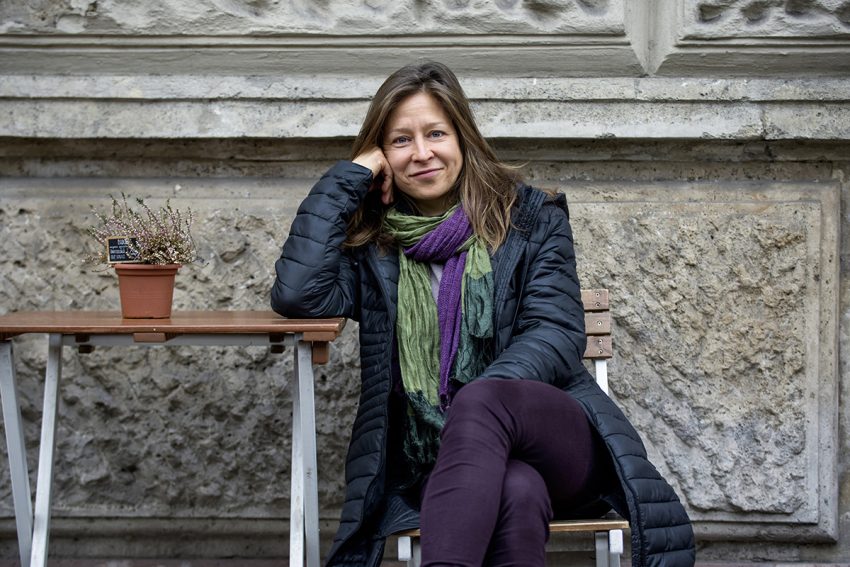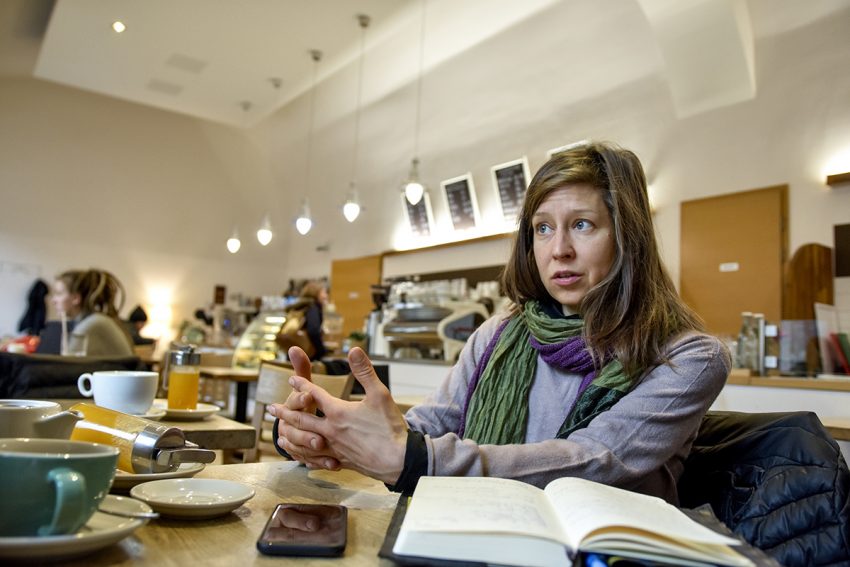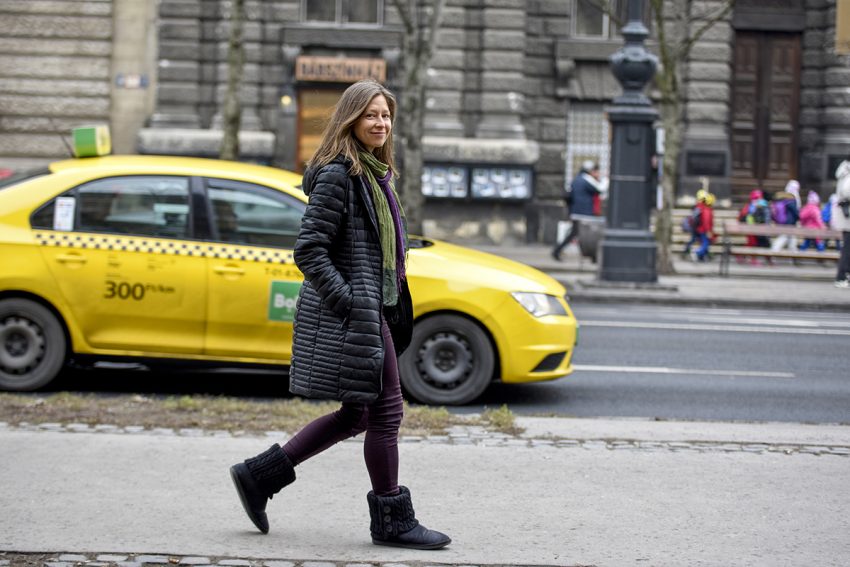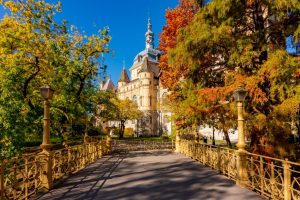The first time Réka Hunyadi showed interest in environment protection was during her university studies when she decided to spend the summer at a bio farm in Switzerland as a volunteer, after which she was an environmental volunteer in Northern Ireland. Her vocation soon turned into a career: she worked on green projects and environmental communication for several non-profit organizations, took up a job as an executive producer to a green-themed TV show, and became the Head of Communication at Greenpeace Hungary in 2016. Ever since she has fought for one common goal with the organization: to restore the harmony between human and nature.

You have recently submitted a set of proposals to the local government of Budapest, listing the most urgent actions on climate emergency.
It is a vision for 2030 that includes plans, which may seem extreme today, such as the transformation of the quayside in downtown Budapest into a car-free public park zone. Restricting traffic is a possible answer to climate emergency as it would reduce the use of fuels in the city while benefiting its residents who could enjoy clean air. Climate protection is linked to our well-being. It’s all about how people have lost their contact with nature, which needs to be restored.
What are the main areas that need change?
Apart from restructuring the transportation system in Budapest, the proposal touches upon energy conversion, more specifically the modernization of central heating, the increase of renewable energy sources, and improving the energy efficiency of the buildings in the city. The document also suggests that within a few years, only buildings with solar panels or green roofs on their top should be constructed, and we have projected the forming of a new municipal park in Nagyerdő, Csepel by 2023.

From an environmental perspective, how developed is Budapest compared to other European capitals?
According the WHO, every city is recommended to provide a minimum of 9 square metres of urban green space for each person. In Hungary it’s only 5 square meters per person, so further progress needs to be made. The previous city government launched a tree planting program, and we need to keep increasing the green spaces in the city centre while protecting the ones we have. However, there are many young trees that have perished, the number of cars in the city is still growing, and Hungary is among the most air polluted countries in Europe – these problems have to be addressed urgently.
Is the city government eager to do so?
So far we have had positive experiences with the new government of Budapest. We have found the climate emergency declaration an important step, though symbolic, but it shows true commitment. The city council has promised that whenever a political decision is to affect the climate, climate protection will be top priority, which shows that climate protection has become equal to economic factors. We would like to believe that this means that the governance of Budapest has realized that living in harmony with nature is at least as important for the well-being of Budapest residents as rising GDP.

How can the people of the city pull their weight in the fight against climate change?
Get informed, do your very best to protect the environment, and always search for new ways to do your share. Consume less, be with your loved ones more and live fuller. Spend more time in nature and aim for consciousness. Try to stay away from producing waste and beware that the production of everything you buy, even if it is recycled, effects climate change.
Many doubt that what we individually do for the environment matters.
I believe in systematic changes to which we can contribute even by signing an environmental petition, for example. The global climate strikes are also playing a part in climate protection becoming a top-agenda of politics and big companies announcing net-zero carbon targets. As consumers and citizens, we can unite to force company owners and politicians to act consciously. For instance, we can demand new laws from politicians that would end the environmental destruction of companies and help us live an eco-conscious life. Personal responsibility is important, but for big changes, we need systematic restructuring.
Photos by Kriszti Németh – Egy jó kép rólad
Thank you to Ecocafe for hosting us for the interview!

